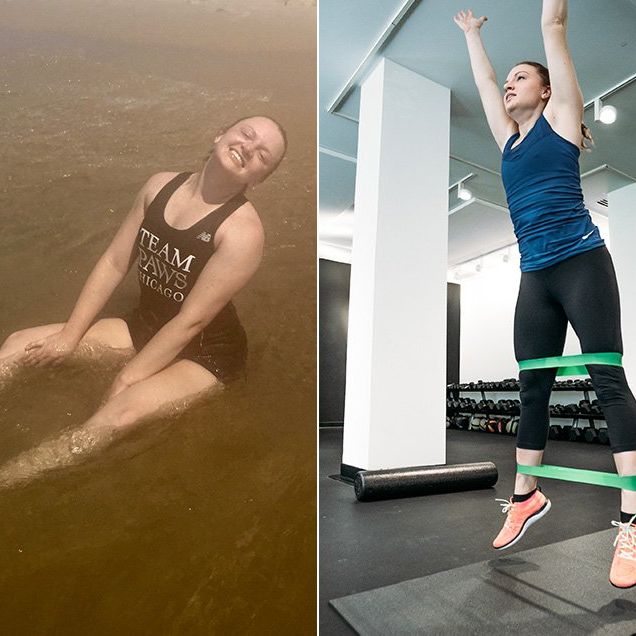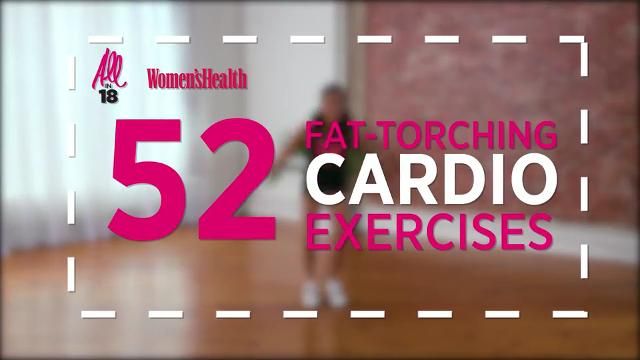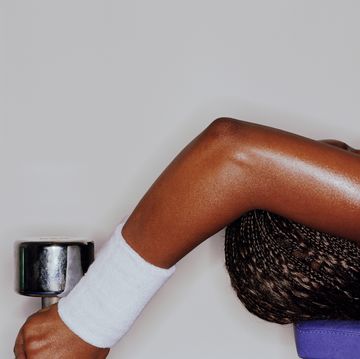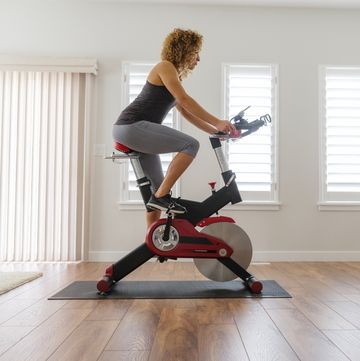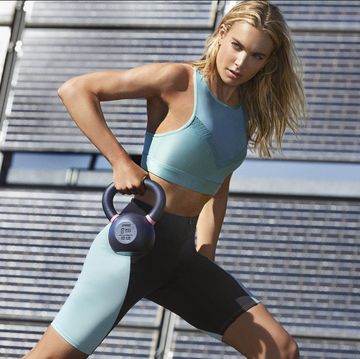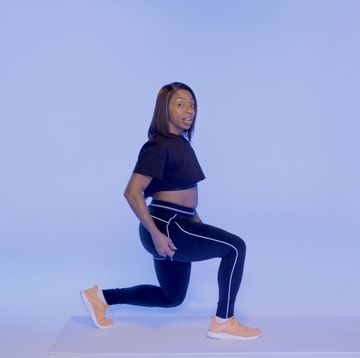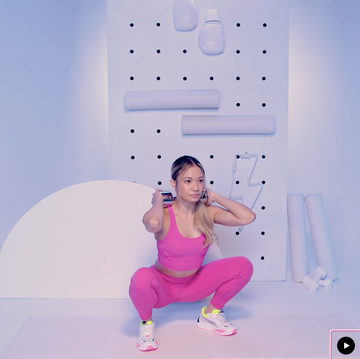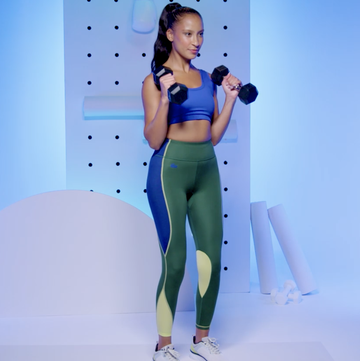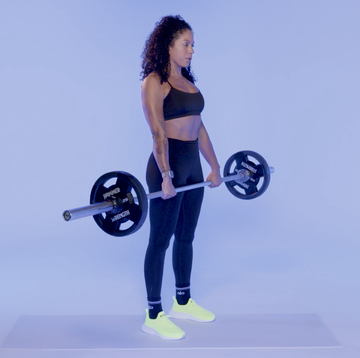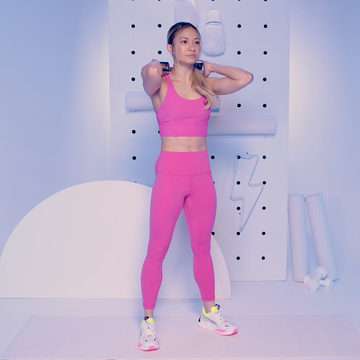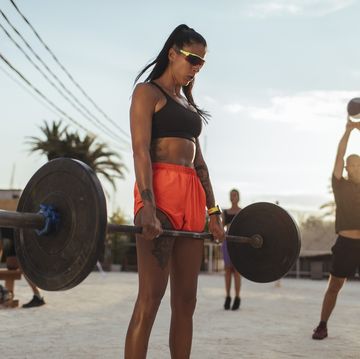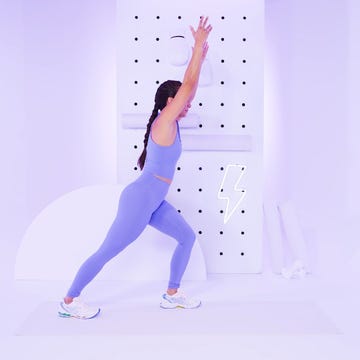In the past year, people have asked me no fewer than 537 times if I went veggie for my health.
“Hell no,” I always said. Until last year, my nickname was “the carnivore.” I polished off T-bones like a champ, rarely ate a meal sans meat, and kept my freezer stocked with a few dozen chicken breasts. Apart from the fact that I just thought meat tasted good, I thought I needed it to be healthy. I thought it was vital to my workouts.
So when what I call “omnivore’s guilt” caught up with me and I decided to give up meat cold-turkey, I immediately worried how my health and fitness would suffer. Would I lose muscle? Would my iron levels—and energy levels—drop? Would I be able to make it through my regular long runs?
Honestly, I never thought I’d stick with vegetarianism. I didn’t even tell people when I initially cut out meat, because I thought the “experiment” would last a week. Maybe a month.
Now, it’s been a year, and I can’t imagine a scenario in which I would go back to being “the carnivore.” In fact, becoming a vegetarian made me far fitter, faster, stronger, and healthier than I ever was as a meat-eater. Here’s why:
1. I started counting protein, and stopped counting calories.
The thought of protein deficiency terrified me. So I went all-out researching vegetarian protein sources and intake needs. I made it my goal to consume between 25 and 35 grams of protein at every meal, a total that a 2015 scientific review published in Applied Physiology, Nutrition, and Metabolism concluded is optimum for muscle health. Meanwhile, to keep from overwhelming myself with all of the math, I stopped paying too much attention to total calories. Getting my protein was my first goal.
After a couple months, I stopped having to actually count grams of protein, and could automatically recognize meals that were on-point. Like scrambled eggs in the morning with cheese, milk (I now drink Fairlife ultra-filtered milk, which contains 50 percent more protein than regularly filtered milk), spinach, and mushrooms. Or bell peppers stuffed with quinoa, black beans, and veggies. Or slow-cooker lentils. Or grilled tofu with chimichurri. I also started stocking the fridge with protein shakes for whenever I knew that I’d be in a situation in which the only non-meat meal option was a plate of refined carbs.
RELATED: The ‘Fittest Woman on Earth' Shares Exactly What She Eats Every Day
2. My runs became easier, but I started losing interest in them.
At the time that I decided to give up meat, I was running four to five days per week, with long runs hitting 10-plus miles. And while I don’t know exactly what it was that made me be able to run at a faster pace for a longer duration once I went veggie (my best guess is the fact that I was actually eating more veggies than before), I became less interested in endurance and more interested in strength.
Apart from running, I had been strength training one or two days per week in an effort to ward off running injuries. And combined with my increased veggie protein intake, just that little amount of strength work was starting to build some muscle. I wanted more. (Get more healthy-eating tips and delicious recipe ideas from Scratch, a cookbook from our CEO, Maria Rodale.)
3. I got so much stronger.
When I switched my training focus from running to picking up heavy things and putting them back down again is when things really started changing for me. I consistently made new PRs at the squat rack, felt badass during every deadlift, and recently crushed my very first unassisted pullup. And while that’s a huge testament to the power of heavy strength training, it also has a lot to do with what I was putting in my body—and not just protein.
Several months ago, while attending the Women’s Fitness Summit, I listened to a nutrition presentation from University of North Carolina at Chapel Hill assistant professor of exercise and sport science Abbie Smith-Ryan, Ph.D., C.S.C.S. As she spoke on female-specific nutrition needs, she addressed the importance of creatine, a natural compound that helps the body generate energy for high-intensity exercise. And know what I had never before considered? Creatine is found in meat.
So I added supplemental creatine to my daily diet. FYI, according to a Journal of Strength and Conditioning Research review of 22 prior studies, creatine supplementation can boost an exerciser’s max strength by up to 45 percent.
RELATED: EXACTLY HOW TO LIFT HEAVY WEIGHTS TO SCULPT MUSCLE AND GET SERIOUSLY STRONG
4. I found myself with way more energy.
I credit my vegetarian-fed energy boost to a ton of factors: the veggies, the protein, the weight lifting, and, yes, the creatine. After all, a recent American Journal of Psychiatry study found that creatine supplementation can double the effectiveness of selective-serotonin reuptake inhibitors, a.k.a SSRIs, in depressed women. (As someone who has struggled with depression and anxiety for decades, and takes an SSRI daily, I can attest to the mental benefits.)
With the extra energy, I found that I suddenly “had time” to move more throughout the day. To stand at my desk. To take a walk around the neighborhood. And, of course, to hit the gym. The more energy I had, the more I put into every workout, and the more I got out of them.
Try these 52 fat-torching cardio exercises next time you've got energy to burn:
5. I lost more than 25 pounds and got back to my “healthy weight.”
After fitting into a pair of pants that I hadn’t been able to wear in years, I stepped on the scale and realized that I had lost a pretty good chunk of weight. Right now, I’m 27 pounds down from where I was when I gave up meat. I thank the veggie-based nutrition—and the workouts that it has fueled.
And while I’d still like to burn some more fat and build lots more muscle (I’m hooked on muscle!), I’m pretty psyched that I’ve gotten to a weight and body composition that is truly healthy for me—and best of all, without ever going on a weight-loss diet. Like I said, I didn’t go veggie for my health. But that doesn’t mean it wasn’t the best thing that has ever happened to my health.
